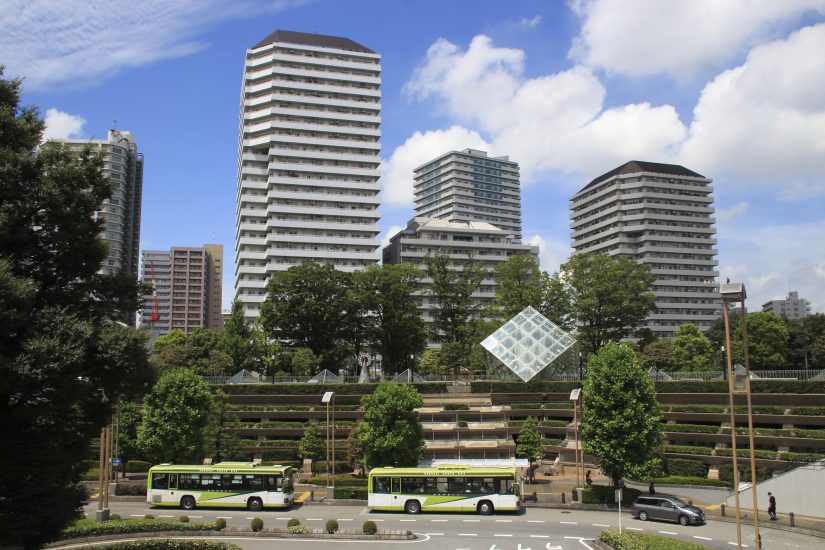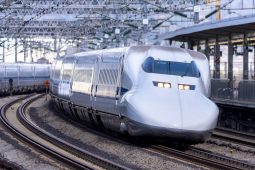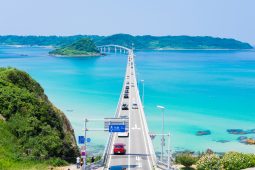About two weeks ago, a bus I was going to take was (thanks to traffic) about ten minutes late, which meant I had to jog a bit to catch a train that was, by the way, right on time itself. It shocked me at the time because in my twenty-seven years here, outside of massive snow or winds stopping trains in their tracks, this is the first time I’ve ever caught any public transport being late.
It put things in perspective, and I say that as someone who has the ‘no, really, public transport is actually good here’ conversation with just about anyone who visits and starts out wary of it. Between taking trains in England, and all the stories I’ve heard from elsewhere in the world, I understand why. Still, with the sheer quality of public transportation in this country – not to mention being so much cheaper than driving – you’re doing yourself a disservice by ignoring it.
I’m going to preface this by saying that I don’t know a lot about taxis in particular; they’re definitely not the cheap option at any time, I just don’t know how they compare to other countries, especially since I’m the kind of person to walk 8km back home (or 5 miles, if you prefer) as a ready alternative. This article is mostly going to focus on other methods: The bus and the train.
Obviously, compared to driving, you don’t get the same amount of precision; if having to walk five to ten minutes to get to an exact place from wherever your stop was is an issue, it might not be for you. Still, there’s a lot to recommend this route (and in big cities, parking spot issues mean you have less freedom than you might think anyway, if traveling).
For one, the price, which is probably obvious. You don’t have to own a car, or park one, or pay for petrol (gasoline, for American readers), all of which adds up pretty quickly… but even objectively, it’s a little shocking how cheap it all is, especially a bus in a large city. When I go to Nagaoka – the second biggest city in the Niigata prefecture – I can take a bus to anywhere in the city, from just about anywhere, for something like 200 yen (a bit under 1.5 pounds or 2 USD).
Adding to this is the fact that trains often offer tickets that, as long as you’re willing to take slow trains, offer unlimited trains for a fairly small amount of money. When I was quite a bit younger, I spent an entire summer traveling around about half of Japan on a travel budget of what was about 20 USD at the time; if you’re not in a hurry, your travel options on a budget open up immensely.
Ubiquity is another perk. I live in… actually, let’s just say the bus station has had a bear in it before. No one would ever call it urban. It still has a bus every hour or two (closer to two or three on a weekend) to the town centre and back – that’s about 11km, or 7 miles – until about 6 PM, and a few free shuttles to the local tourist spots in the right season, with a similar amount of trains (if not a bit more) going to nearby cities and even other prefectures. It’s not a particularly unusual case, either. In a city like Nagaoka, this upgrades to a bus every ten or fifteen minutes and a train every twenty, more or less. In Tokyo, it gets even better.
Given the stories I hear from visitors, I should probably mention this: Public transport in Japan is, pretty much without exception, clean and quiet. The absolute worst I’ve seen is someone taking up an extra seat with a bag if they think nobody is using it, or an extra half-seat with their newspaper. Unfortunately, that’s where I give myself away (again) as a country person, because I’ve heard many times that trains in metropolitan areas get a lot worse when crowded, especially for women; luckily, the same trains have had women-only carriages for a while now, which should buy some peace of mind.
Oh, and as I mentioned at the start of the article, barring a major snowstorm, everything is almost flawlessly punctual. There are a few things you’ll want to keep in mind, though. For one, in the countryside, the relatively low number of buses and trains could be an issue without a taxi or car; obviously, if you have to rely on a taxi often, that’s an issue. It hasn’t come up for me, but I don’t run around town all that much.
Trains have a minor complication with regional division (and without a guide or Japanese skills it can be hard to navigate in less urban areas). Essentially, trains are split into a few companies depending on the area of Japan you’re in; if you happen to be on the borders of those companies’ territories, you might have to make an extra stop, buy a ticket and change train. It’s a bit of a hassle and feels arbitrary at the time, but it’s not too bad.
The worst of it, which some of you might be thinking of already, is crowding in metropolitan areas during rush hour. Unfortunately, I can’t really say anything good here: It’s the same on roads, and short of walking or taking a bicycle for short distances, there isn’t really a solution, so much as it’s just a natural result of Japan’s largest cities being so completely packed (something Japan’s been trying to change for three decades and counting; I wouldn’t hold my breath if I were you). The very strictly scheduled life of the average person in Japan means that it’s particularly bad at certain hours, and surprisingly empty the rest of the time; in other words, if you work at unusual hours (or work from home), you can take advantage of this, but otherwise it’s a major sticking point.
As usual, I don’t mean to sound negative, but it’s only fair to make sure everyone goes in knowing what problems might come up. Japan’s trains and buses are an important part of living here, and (along with everything else in the country running smoothly, but that’s another article) part of why I can probably never live anywhere else by now. Forget anything that might have made you ignore it in another country, and it should make your life here much easier.








